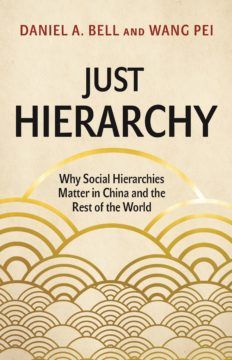Leanne Ogasawara in The New Rambler:
 Imagine a drowning city. The collapse of the Greenland ice sheets has led to a ten-foot rise in global sea-levels. You think this is bad, but it is followed by further melting at the Aurora Basin in East Antarctica, resulting in another forty-foot rise. In his novel, New York 2140, Kim Stanley Robinson paints a picture of a flooded Manhattan, where morning commuters use vaporetti to travel to and from work and live in apartment towers that reach up out of the rising waters into the sky. As you might imagine, the city suffers from staggering income inequality. Hedge-fund millionaires weave in and out of shipping lanes in their private speedboats, as kids who can’t read ferry people around in leaky gondolas through waters poisoned with toxic waste. The world is facing an unprecedented existential threat. And survival will demand collective action and sacrifice. In such a world, what kind of government would you want calling the shots?
Imagine a drowning city. The collapse of the Greenland ice sheets has led to a ten-foot rise in global sea-levels. You think this is bad, but it is followed by further melting at the Aurora Basin in East Antarctica, resulting in another forty-foot rise. In his novel, New York 2140, Kim Stanley Robinson paints a picture of a flooded Manhattan, where morning commuters use vaporetti to travel to and from work and live in apartment towers that reach up out of the rising waters into the sky. As you might imagine, the city suffers from staggering income inequality. Hedge-fund millionaires weave in and out of shipping lanes in their private speedboats, as kids who can’t read ferry people around in leaky gondolas through waters poisoned with toxic waste. The world is facing an unprecedented existential threat. And survival will demand collective action and sacrifice. In such a world, what kind of government would you want calling the shots?
This question is not something only out of the world of fiction. Climate change and a worldwide pandemic are on everyone’s mind. Yet, for all the talk, it could be argued that intellectuals are not discussing enough what types of government might be best suited for making the tough decisions necessary for long-term planning and collective preparation. One notable exception to this is political philosopher Daniel Bell, who for the last two decades, has been writing books and a seemingly endless stream of provocative op-ed pieces highlighting the ways in which less-democratic forms of government might be better suited to tackling the tough issues we now face.
More here.
